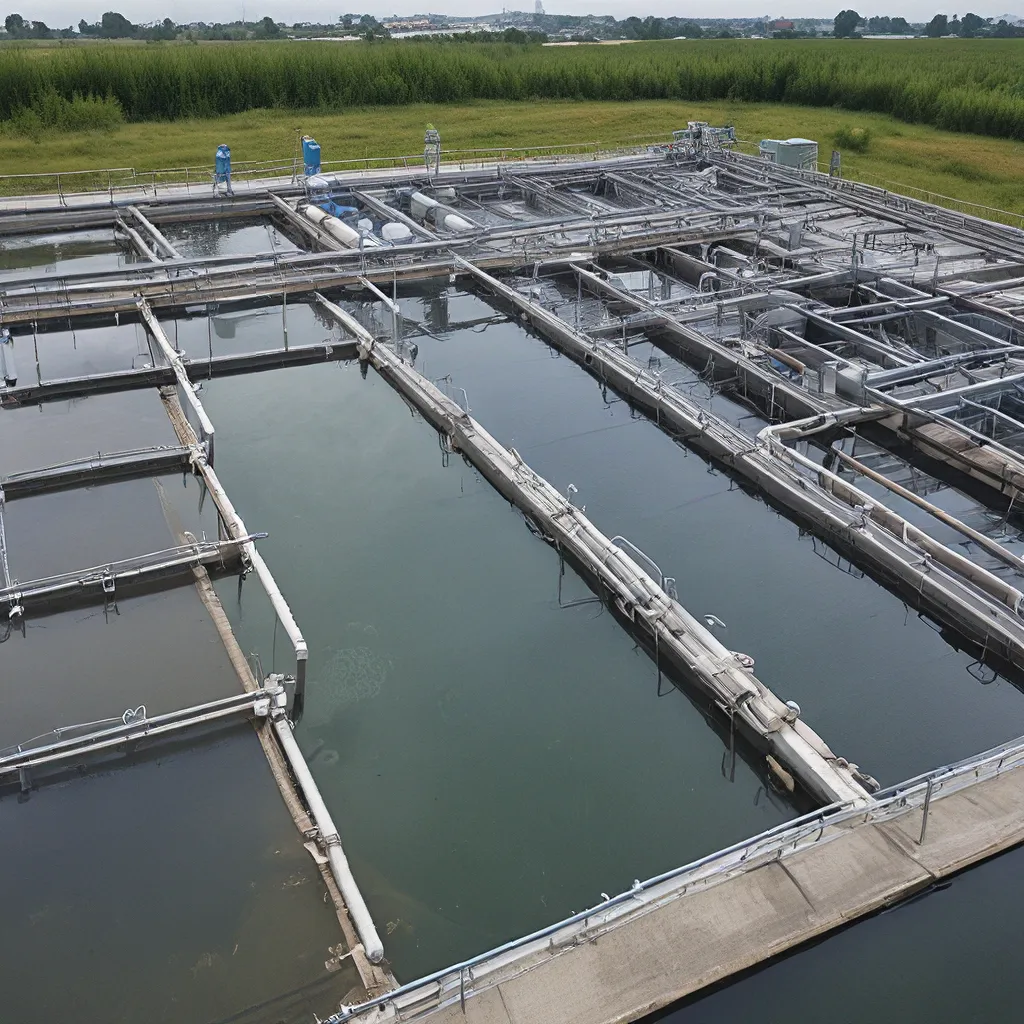
As someone who’s always been fascinated by the intricacies of the natural world, I’ve long been captivated by the incredible process of wastewater treatment. It’s a technological marvel that transforms the murky, contaminated waters flowing from our sinks, showers, and factories into crystal-clear, reusable liquid – a true triumph of human ingenuity.
The Evolving Landscape of Water Scarcity and Environmental Regulations
In recent years, the need for effective wastewater treatment has only become more pressing. Water scarcity, driven by factors like population growth, urbanization, and climate change, has placed enormous strain on our freshwater resources. At the same time, stricter environmental regulations have compelled industries to reduce their freshwater intake and the pollution they discharge. These dual pressures have sparked a wave of innovation in the field of wastewater treatment, with cutting-edge technologies emerging to address these critical challenges.
The Rise of Membrane Bioreactor (MBR) Technology
One of the most exciting advancements in this space is the membrane bioreactor (MBR) technology. This ingenious system combines the power of biological treatment with the precision of membrane filtration, creating a highly efficient and effective solution for purifying wastewater. In a traditional activated sludge process, the separation of solids from the liquid component relies on gravity-driven settling, which can be slow and inconsistent. But in an MBR system, submerged membranes act as physical barriers, allowing clean water to pass through while retaining larger particles and microorganisms within the bioreactor. This integration of biological and physical treatment processes results in a consistently high-quality effluent that meets even the most stringent discharge standards.
MBR technology offers a range of benefits that make it a game-changer in the world of wastewater treatment. Its compact design allows for a smaller footprint, making it well-suited for urban and industrial settings where space is limited. Additionally, MBR systems can handle fluctuations in wastewater quality and volume, ensuring reliable performance even in the face of changing conditions. And compared to traditional activated sludge processes, MBR treatment often leads to lower sludge production, reducing the associated handling and disposal costs.
Reverse Osmosis and Advanced Oxidation Processes
While MBR technology is a standout in the wastewater treatment landscape, it’s not the only innovative solution making waves. Reverse osmosis (RO) is another cutting-edge technology that plays a crucial role in water recycling. By forcing wastewater through semipermeable membranes under high pressure, RO effectively removes a wide range of contaminants, including salts, heavy metals, and organic compounds, producing high-quality water suitable for a variety of reuse applications.
Complementing these membrane-based technologies are advanced oxidation processes (AOPs). These powerful systems leverage highly reactive hydroxyl radicals to break down even the most stubborn organic pollutants, making them a valuable tool in modern water treatment and recycling efforts. The adaptability and versatility of AOPs allow them to tackle a diverse range of contaminants, further expanding the possibilities for wastewater reuse.
Electrocoagulation: A Versatile Water Treatment Solution
Another innovative technology worth highlighting is electrocoagulation. Unlike traditional coagulation methods that rely on chemical additives, electrocoagulation generates coagulants in situ using electric currents. This approach not only reduces the need for chemical handling and disposal but also proves effective at removing a broad spectrum of contaminants, including heavy metals, pathogens, emulsified oils, and suspended solids. The adaptability and effectiveness of electrocoagulation make it a valuable tool for treating various types of wastewater, from industrial to municipal to agricultural.
Embracing Water Recycling for Sustainability and Resilience
As these innovative technologies continue to evolve and expand their applications, the adoption of water recycling is becoming increasingly widespread across industries. By reducing their dependency on freshwater sources, companies can not only enhance the sustainability of their operations but also improve their resilience in the face of water scarcity and supply disruptions. Recycling wastewater can lead to significant cost savings, as it lowers the expenses associated with freshwater intake, wastewater treatment, and disposal.
However, the implementation of these technologies is not without its challenges. The high initial capital costs, ongoing operational expenses, and technological complexity required can sometimes present barriers to adoption. Overcoming these hurdles requires a combination of strategic investment, skill development, and continuous optimization to ensure the long-term success of water recycling initiatives.
The Future of Wastewater Treatment: Endless Possibilities
As I reflect on the rapid advancements in wastewater treatment, I can’t help but feel a sense of excitement and wonder. The integration of membrane filtration, biological treatment, oxidation processes, and electrochemical coagulation has transformed the landscape, offering innovative solutions that push the boundaries of what’s possible. And with ongoing research and development, I can only imagine the even more remarkable breakthroughs that lie ahead.
Perhaps one day, the wastewater flowing from our taps will be indistinguishable from the pristine waters of a mountain stream. Or maybe we’ll see the widespread adoption of decentralized, on-site treatment systems that bring the power of purification right to our doorsteps. The possibilities are truly endless, and I can’t wait to see how the future of wastewater treatment unfolds.
In the meantime, I encourage you to explore the services offered by Alpha Wastewater, a company at the forefront of this technological revolution. Their expertise in cutting-edge treatment solutions may just be the key to unlocking a more sustainable, resilient, and environmentally responsible future for your business and your community.